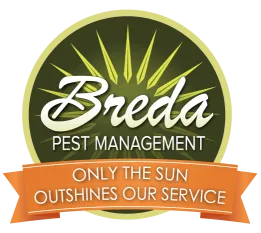The start of winter brings an end to the season for most outdoor pests. The cold weather either forces them into hibernation, forces the insects to migrate to a warmer environment, or ends the life cycle of insects that live for just one season. While this may seem like a time when you can relax your pest control efforts, you need to do the exact opposite. Pests are even more likely to try to get into your home as they search for warmth and shelter.
Remove Sources of Standing Water
While water temperatures drop when the air temperature drops, the water temperature remains higher than the air temperature for most of the winter. Where air temperatures may be unsurvivable, insects such as mosquitoes that breed in water could be protected. Mosquitoes only need an inch of water to mate and lay eggs, so be diligent in emptying out standing water. If you drain your pool, keep it covered to prevent rain or melting snow from collecting. Clean out your gutters, and improve the drainage in areas where puddles form in your landscape.
Keep Wood Away From Your Home
This includes stacked firewood, mulch, and other landscaping materials. Having wood next to your home creates three potential problems. First, it provides a food source and entry point for termites. Second, it provides cover for rodents and insects to approach your home without fear of predators. Third, it creates a potential nesting site for all types of insects as the wood holds the heat radiating from your home. Leave a gap in between your mulch and your walls, and store firewood in a free-standing shed.
Seal Your Home
Tiny insects can enter through tiny cracks. Check that the weather stripping on your windows and doors provides a tight seal and that there are no gaps in your caulking. Ensure that any gaps around your plumbing fixtures or electrical outlets are also tightly sealed to keep critters that found their way into your walls from getting inside. Inspect your soffits, awnings, and roofline for holes and cracks, and immediately make any necessary repairs.
Something else that is worth looking into is pest control insulation. This insulation has pesticides and borate additives mixed into it which helps manage bug populations. As insects try to eat their way through the insulation, the pesticides and borate additives will kill any creepy crawly quickly. The borate also stays in your insulation for years, ensuring a long-term fix to a bug control issue. Additionally, this type of insulation is energy efficient, saving the consumer money on their bills, and it can also help reduce sound.
Eliminate Food Sources
As food becomes scarcer, insects will roam farther in search of food. Don't let your home be an easy feeding ground. Tightly seal trash cans, and don't store them right up against your home. Clean up yard debris both before the start of the winter and following winter storms. After eating, don't leave food out. Instead, put it back in the fridge, pantry, etc. to eliminate the possibility of insects eating your groceries. If you place feeders for birds, purchase the rodent and insect-proof kind, and store extra food in tightly sealed containers. Need help getting your home ready for winter? Contact Breda Pest Management today.




